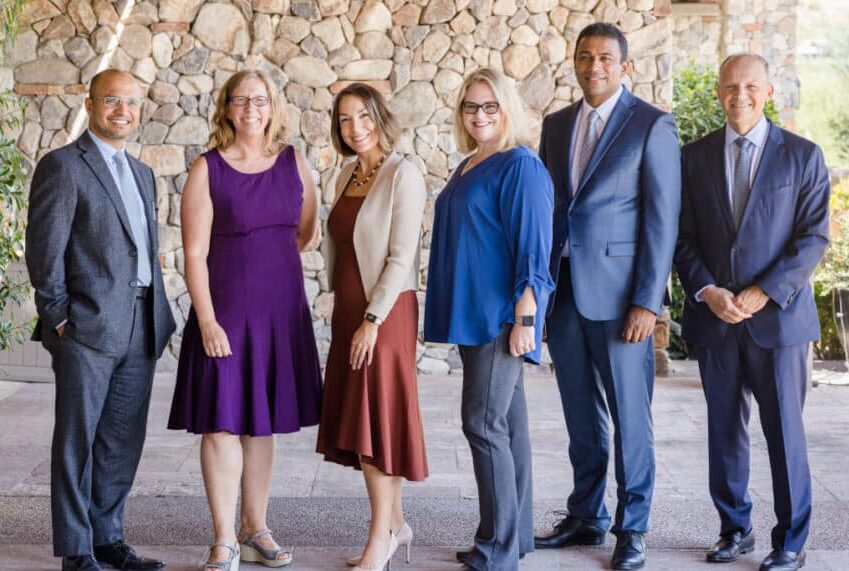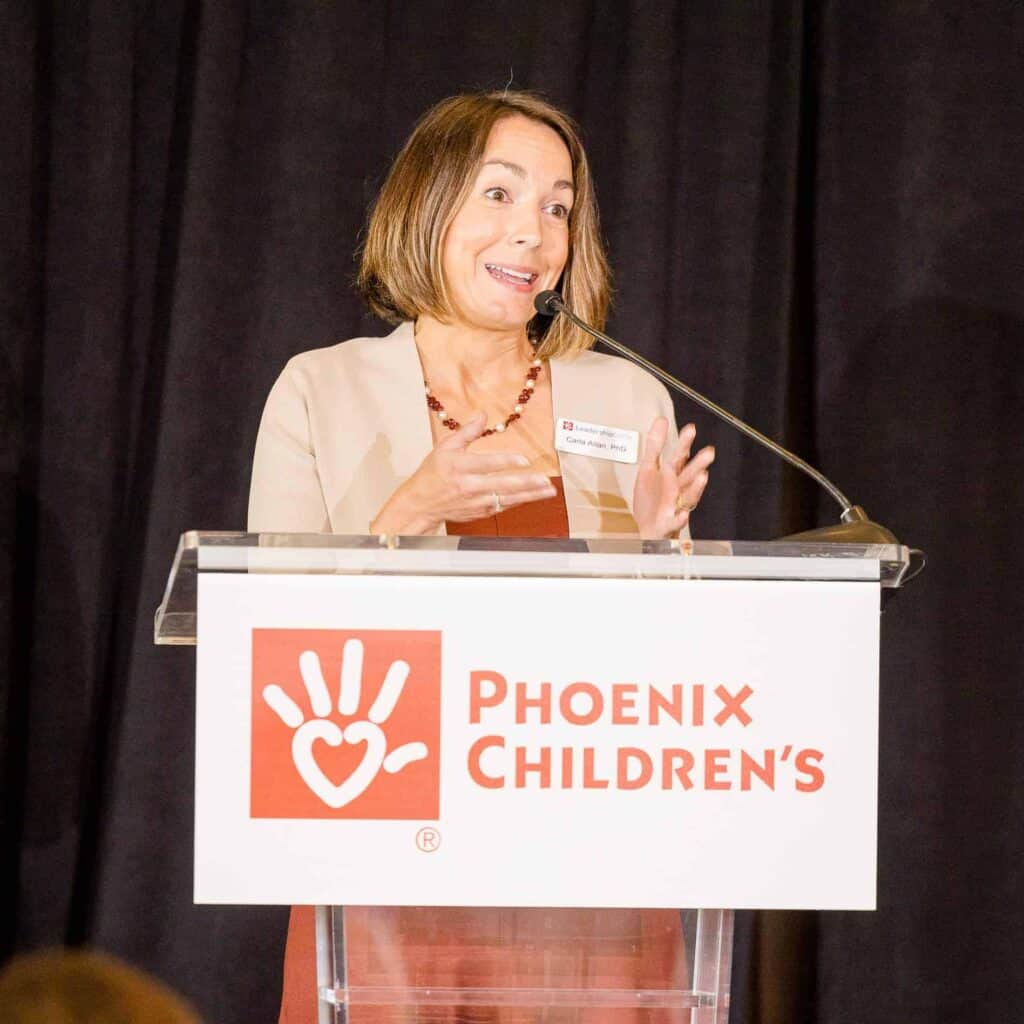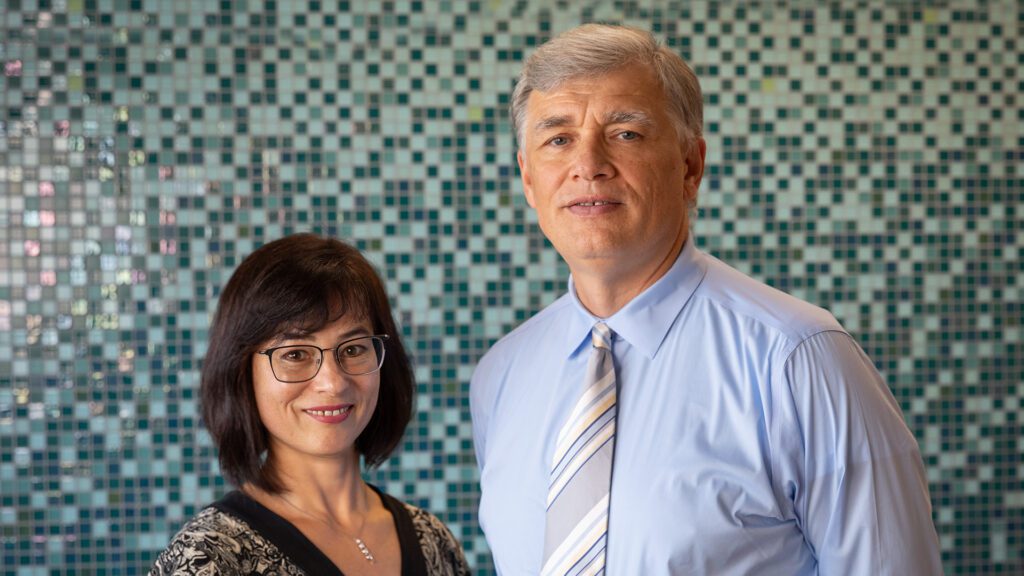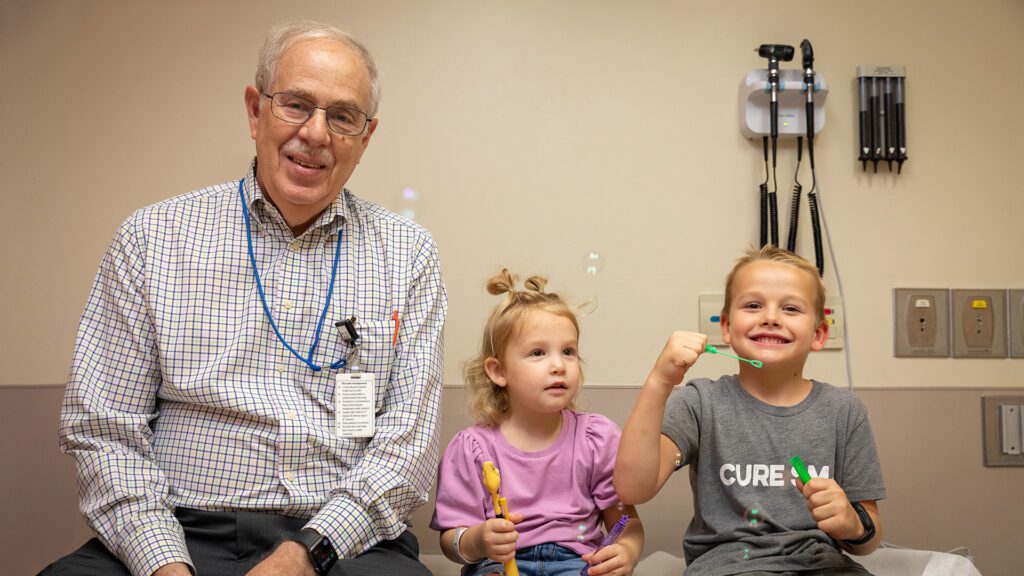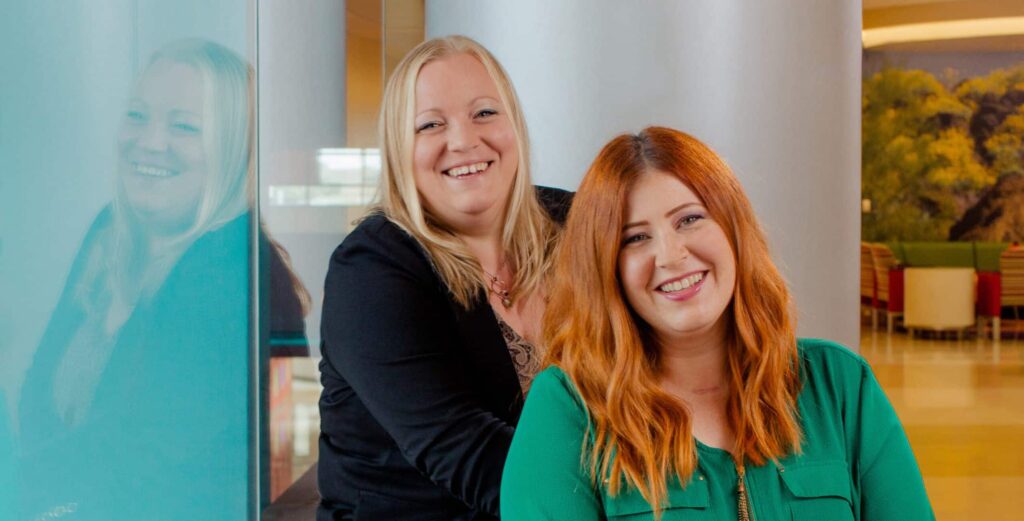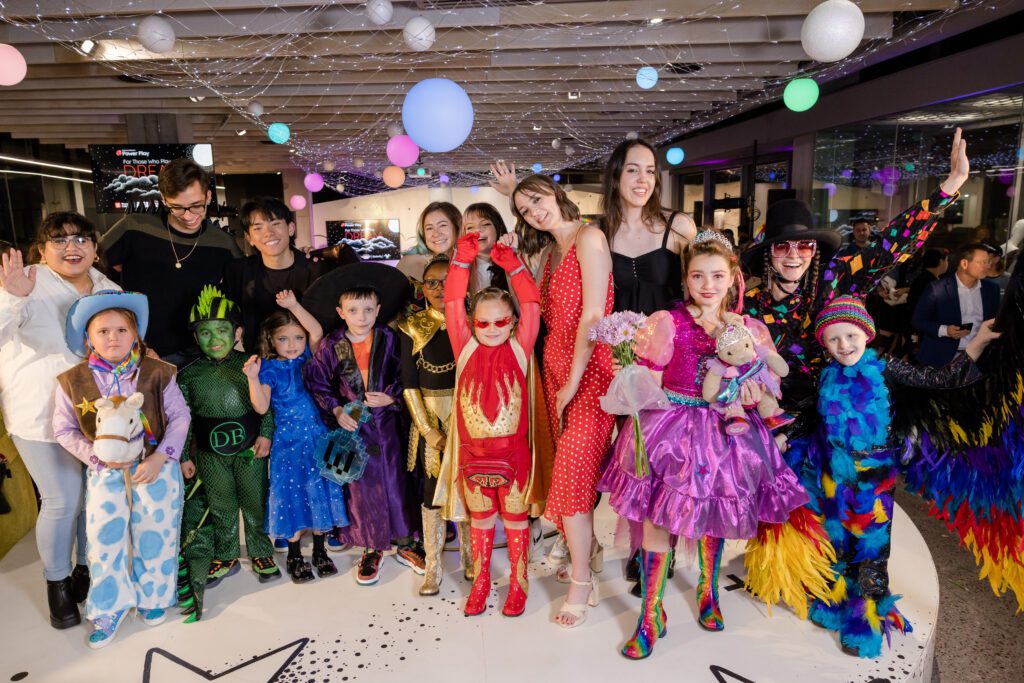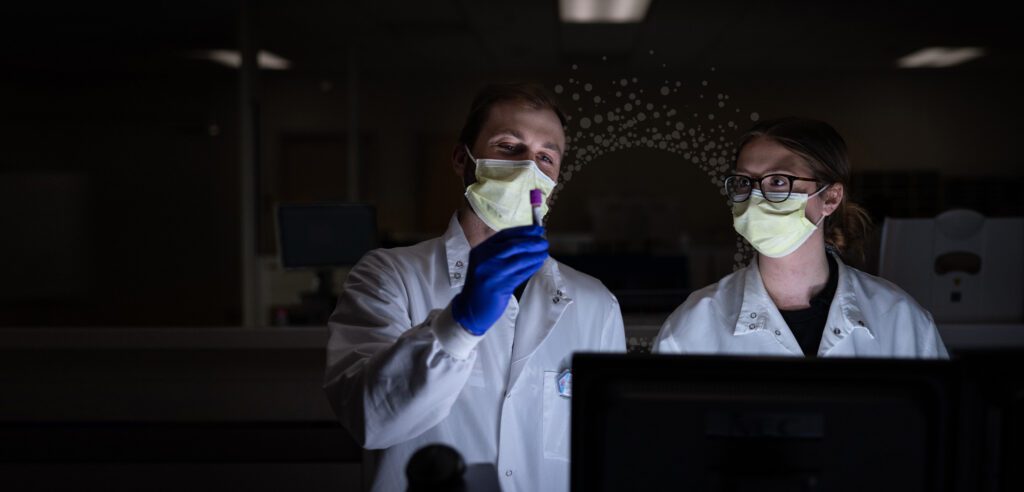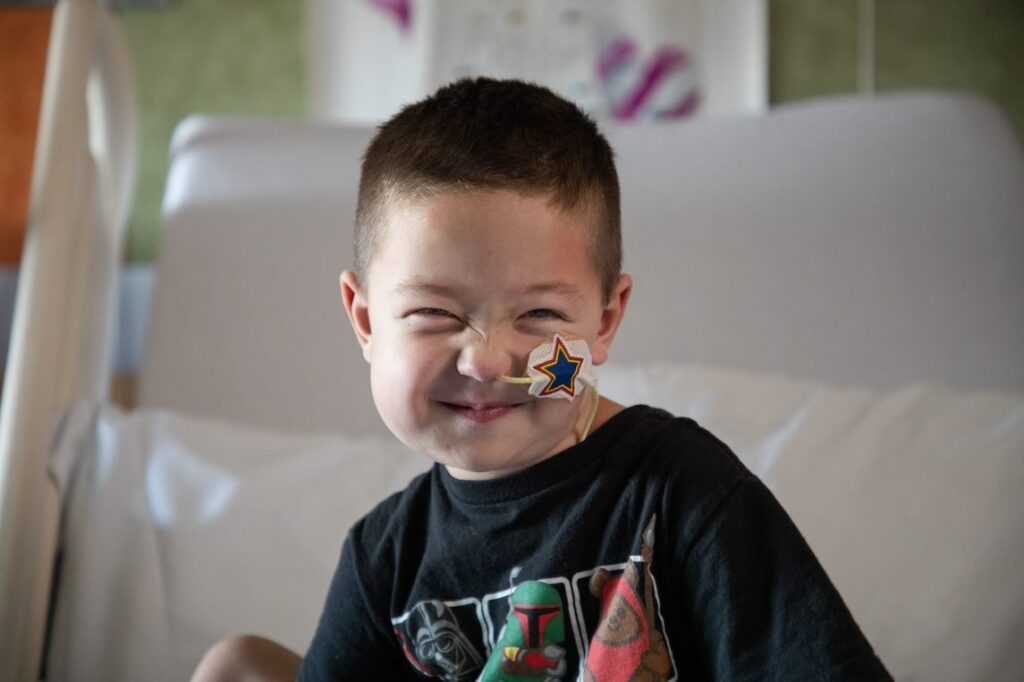Every year, physicians and researchers at Phoenix Children’s compete for grant funding to support leading-edge, high-impact projects—innovations such as WATCHER, an early-warning system that alerts the care team when a patient’s condition begins to deteriorate, or transnasal endoscopy, a less expensive and less invasive endoscopic procedure.
These projects are made possible by members of Innovation Circle, a giving group that invests in innovation at Phoenix Children’s. Innovation Circle members’ contributions are pooled to create a grant fund. Once a year, physicians and researchers from across Phoenix Children’s compete for funding for their projects. Members vote on which projects to fund each year.
This year, four projects received a total of $418,781 in grant funding. Here, we take a look at how the 2021 Innovation Circle grant recipients will push the boundaries of pediatric health care.
Cady Berkel, PhD, and Emma Ross-Khatami, PhD: PTSD screening for bone marrow transplant patients
Palliative Care/Bone Marrow Transplant
While a bone marrow transplant (BMT) is a critical lifesaving intervention, children undergoing this treatment are often at risk for post-traumatic stress disorder (PTSD). However, no pediatric hospitals screen BMT patients or their families for PTSD. Cady Berkel, PhD, and Emma Ross-Khatami, PhD, will develop a system that allows Phoenix Children’s to use validated and freely available screeners to monitor BMT patients and families for PTSD symptoms prior to each regularly scheduled visit for a full year following transplant. For those patients and families who report symptoms, Phoenix Children’s will connect them to mental health support.
Carla C. Allan, PhD: Early intervention for dyslexia
Psychology
Although there is no cure for dyslexia, early assessment and intervention result in the best outcomes. Pediatricians screen children for many developmental milestones, but they do not routinely screen for dyslexia. Why? Until now, there had been no tool available. Carla C. Allan, PhD, will address this challenge with the development of a dyslexia screening questionnaire (DySQ). Pediatricians will be able to use DySQ to screen for reading disorders in children finishing kindergarten or enrolled in first grade at the time of their 6-year well-check visit. This new assessment will offer a diagnosis at a young age, allowing children to benefit from early treatment.
Luis F. Goncalves, MD: Toward a better fetal cardiac MRI
Radiology
Most children with congenital heart disease (CHD) are diagnosed while still in the womb. Getting a precise prenatal diagnosis requires advanced fetal imaging. Although fetal MRI already plays a large role in the diagnosis of CHD, the motion of the fetus coupled with the small size of the fetal heart and the fast heart rate make it challenging to image the heart. Luis F. Goncalves, MD, is advancing existing technology into a faster, user-friendly software for processing fetal cardiac MRI. This software can be used by any technologist or radiologist to generate diagnostic-quality 2D and 3D images of the fetal heart.
Theresa Currier Thomas, PhD: Identifying sex differences in brain function
Barrow Neurological Institute at Phoenix Children’s, NeuroTrauma Lab
Females are underrepresented in clinical trials across all disciplines, especially in neurosciences. Depression, anxiety and other mood disorders are more prevalent in females and have a basis in dysregulation of the neuroendocrine axis. While hormone receptors are located on all cells in the body, the impact of sex hormones on neurotransmission in both sexes is poorly understood. Data from males is often generalized to females, making assumptions that the neurobiology is the same and putting female patients at higher risk for adverse effects. Theresa Currier Thomas, PhD, is studying sex differences in basic neurotransmission, after neurological insult and during recovery with the goal of improving quality of care for female pediatric patients.
Since 2004, Innovation Circle has awarded nearly $6 million in grant funding to advance the work of Phoenix Children’s top innovators. Find out how you can help us move Phoenix Children’s forward!
If you have a story about how your life has been touched by Phoenix Children’s, we want to hear from you.

